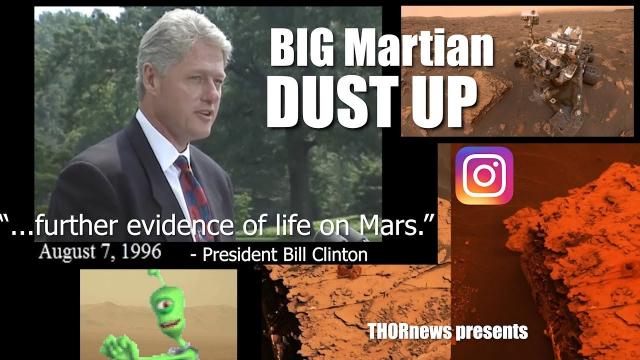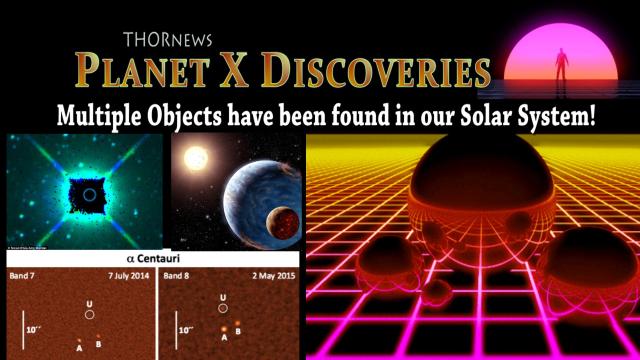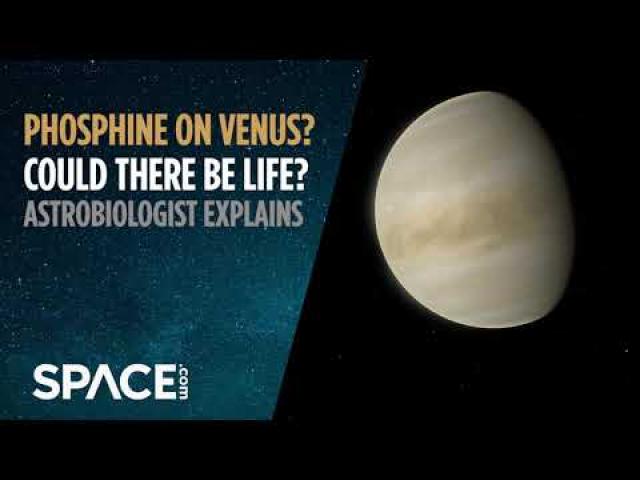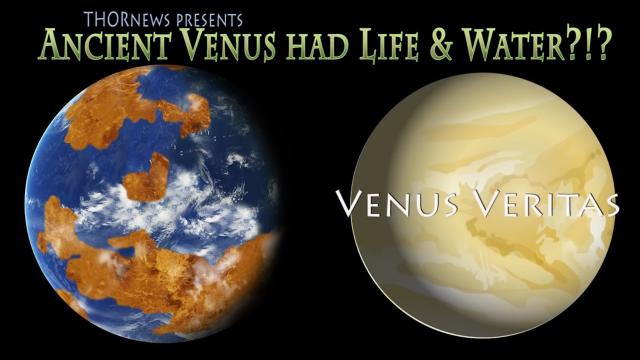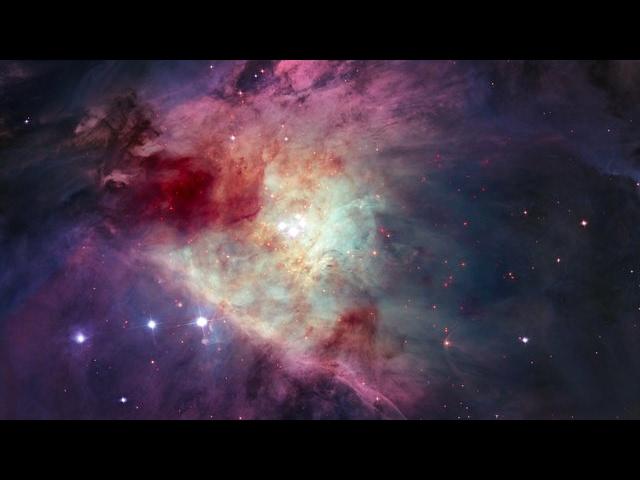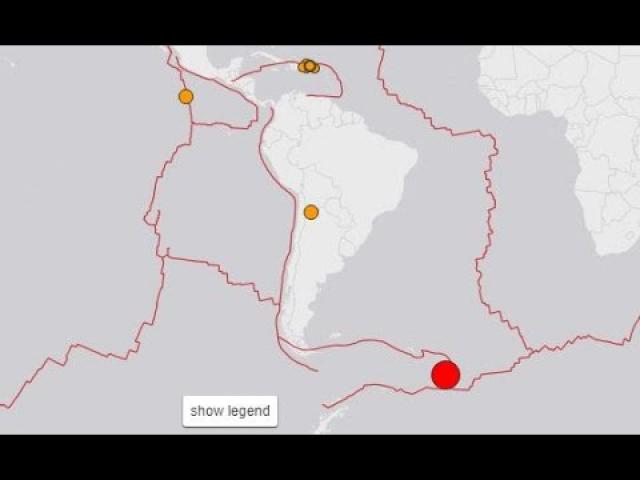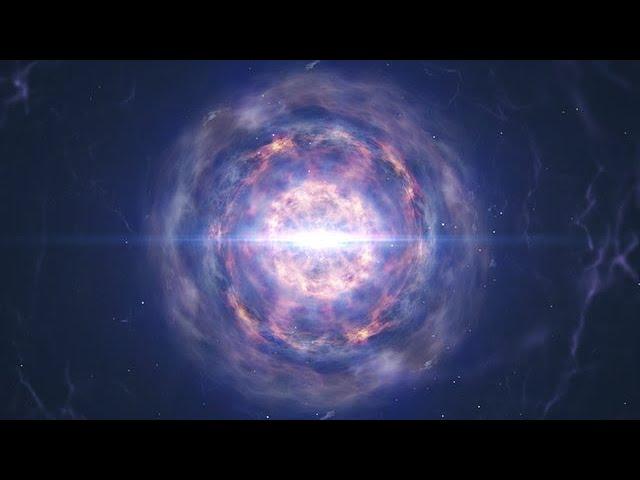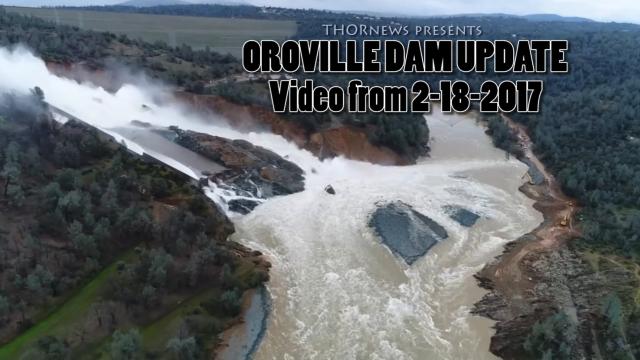LIFE ON PLANET VENUS!?!? Shocking:* Revelation! Astronomers may have found Evidence!
Description
WARNING! Venus Veritas makes me a happy Venus Viking!
This is a part ZERO THORnews Asteroid Fight Club video.
You've been warned.
God bless everyone,
T LEWISON
J5430 BIRDWOOD RD. #416
HOUSTON TEXAS 77096
https://www.paypal.me/THORnews
https://venmo.com/TEric-Lewison
$THORnews on CashApp
https://www.patreon.com/thornews
special thank you to
Billie Eilish Selena Gomez Emilia Clarke Emma Watson Alexis Knapp
NikLoves and all my crushes and muses.
Article on said subject.
https://www.nytimes.com/2020/09/14/science/venus-life-clouds.html
Life on Venus? Astronomers See a Signal in Its Clouds
The detection of a gas in the planet’s atmosphere could turn scientists’ gaze to a planet long overlooked in the search for extraterrestrial life.
176
ADVERTISEMENT
Continue reading the main story
Life on Venus? Astronomers See a Signal in Its Clouds
The detection of a gas in the planet’s atmosphere could turn scientists’ gaze to a planet long overlooked in the search for extraterrestrial life.
An image of Venus, made with data recorded by Japan’s Akatsuki spacecraft in 2016. So close, so similar and very mysterious, the planet is surprising scientists with a chemical signature spotted in its clouds.
An image of Venus, made with data recorded by Japan’s Akatsuki spacecraft in 2016. So close, so similar and very mysterious, the planet is surprising scientists with a chemical signature spotted in its clouds.Credit...PLANET-C Project Team/JAXA
By Shannon Stirone, Kenneth Chang and Dennis Overbye
Sept. 14, 2020
Updated 4:18 p.m. ET
176
High in the toxic atmosphere of the planet Venus, astronomers on Earth have discovered signs of what might be life.
If the discovery is confirmed by additional telescope observations and future space missions, it could turn the gaze of scientists toward one of the brightest objects in the night sky. Venus, named after the Roman goddess of beauty, roasts at temperatures of hundreds of degrees and is cloaked by clouds that contain droplets of corrosive sulfuric acid. Few have focused on the rocky planet as a habitat for something living.
Instead, for decades, scientists have sought signs of life elsewhere, usually peering outward to Mars and more recently at Europa, Enceladus and other icy moons of the giant planets.
The astronomers, who reported the finding on Monday in a pair of papers, have not collected specimens of Venusian microbes, nor have they snapped any pictures of them. But with powerful telescopes, they have detected a chemical — phosphine — in the thick Venus atmosphere. After much analysis, the scientists assert that something now alive is the only explanation for the chemical’s source.
Some researchers question this hypothesis, and they suggest instead that the gas could result from unexplained atmospheric or geologic processes on a planet that remains mysterious. But the finding will also encourage some planetary scientists to ask whether humanity has overlooked a planet that may have once been more Earthlike than any other world in our solar system.
“This is an astonishing and ‘out of the blue’ finding,” said Sara Seager, a planetary scientist at the Massachusetts Institute of Technology and an author of the papers (one published in Nature Astronomy and another submitted to the journal Astrobiology). “It will definitely fuel more research into the possibilities for life in Venus’s atmosphere.”
“We know that it is an extraordinary discovery,” said Clara Sousa-Silva, a molecular astrophysicist at Harvard University whose research has focused on phosphine, and another of the authors. “We may not know just how extraordinary without going back to Venus.”
Sarah Stewart Johnson, a planetary scientist and head of the Johnson Biosignatures Lab at Georgetown University who was not involved in the work, said, “There’s been a lot of buzz about phosphine as a biosignature gas for exoplanets recently,” referring to the search for life on worlds that orbit other stars. “How cool to find it on Venus.”
She added: “Venus has been ignored by NASA for so long. It’s really a shame.”
David Grinspoon of the Planetary Science Institute in Tucson, Ariz., who was not part of the work but has long promoted the possibility of life in Venus’s clouds, said, “That is pretty damn exciting!”
The work needs to be followed up, he said, “but this could be the first observation we’ve made which reveals an alien biosphere and, what do you know, it’s on the closest planet to home in the entire cosmos.”
Jim Bridenstine, the administrator of NASA, responded to the finding on Twitter, saying, “ It’s time to prioritize Venus.”
Venus is one of the most beautiful objects in Earth’s sky. But at a closer glance, the less lovely it becomes.
Often called Earth’s twin, Venus is roughly the same mass as Earth. Many scientists think that Venus was once covered in water and possessed an atmosphere where life as we know it could have flourished.

